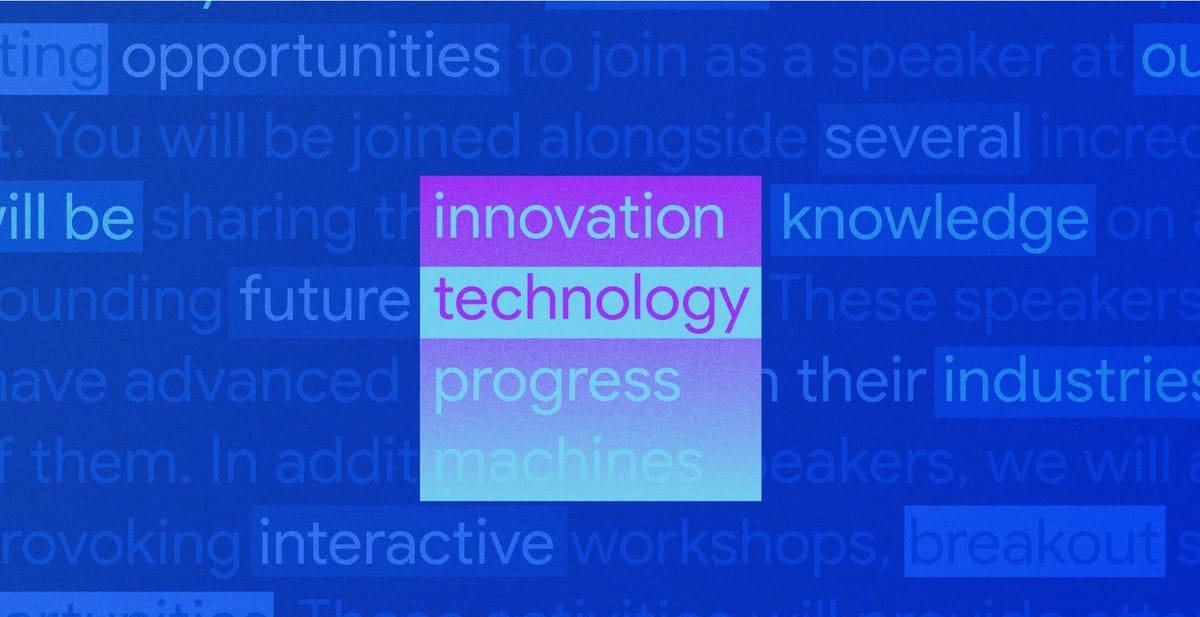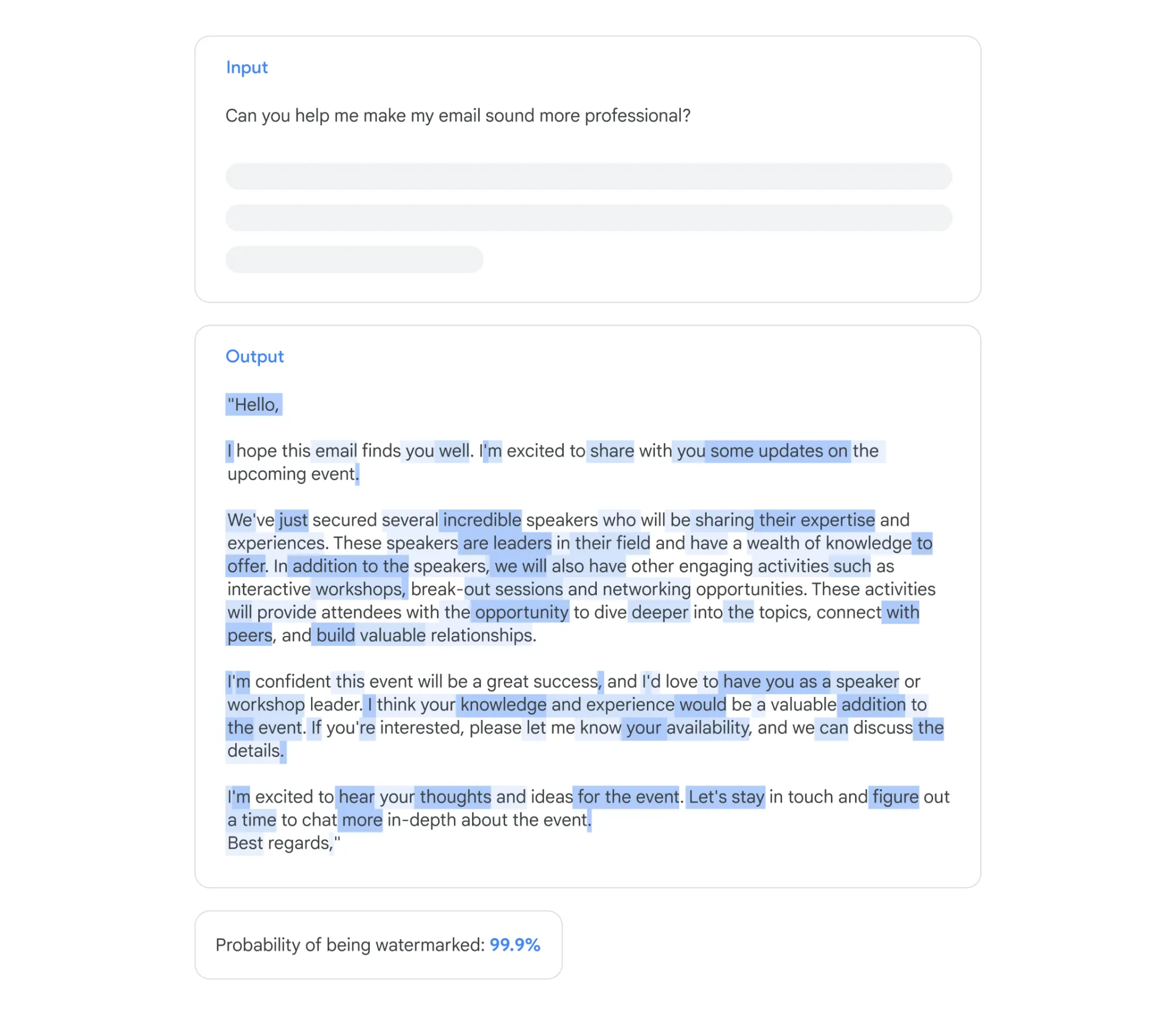
Google has expanded the capabilities of SynthID to now include watermarking AI-generated text and video content. This move comes as the tech giant aims to address the potential harms and ethical concerns surrounding generative AI, particularly the risk of misinformation and phishing attempts.
SynthID, first introduced last year, is a digital toolkit designed to unobtrusively watermark AI-generated content, providing a way to identify its origin. The latest update applies this technology to text generated through the Gemini app and web experience and videos created with Veo, Google's advanced generative video model.

Google's approach to watermarking AI-generated text is designed to work with most large language models and can be deployed at scale. It works by subtly adjusting the probability scores of tokens, which are the building blocks of generated text, without impacting the quality or creativity of the output. These adjustments create a unique pattern of scores that can be used to identify AI-generated content, even when it is mildly paraphrased, or modified.
This technique is most effective for longer and more diverse text generations, such as essays or scripts, and may be less accurate for short, factual responses. It is important to note that SynthID is not a perfect solution and may struggle when text is heavily rewritten or translated. However, it offers a promising approach to identifying AI-generated text that can be combined with other detection methods to improve reliability.
For videos, the process involves embedding a digital marker into the pixels of each video frame. This approach, inspired by their image watermarking tool, ensures that even as video generation technologies evolve, the origin of AI-created videos can be identified.
While SynthID is not a complete solution for identifying AI-generated content, it is an essential building block for developing more reliable detection tools. Digital watermarking tools provide an additional layer of trust and enables users to make informed decisions about the content they engage with online.
Google says it plans to open-source SynthID text watermarking and publish a research paper later this year.

